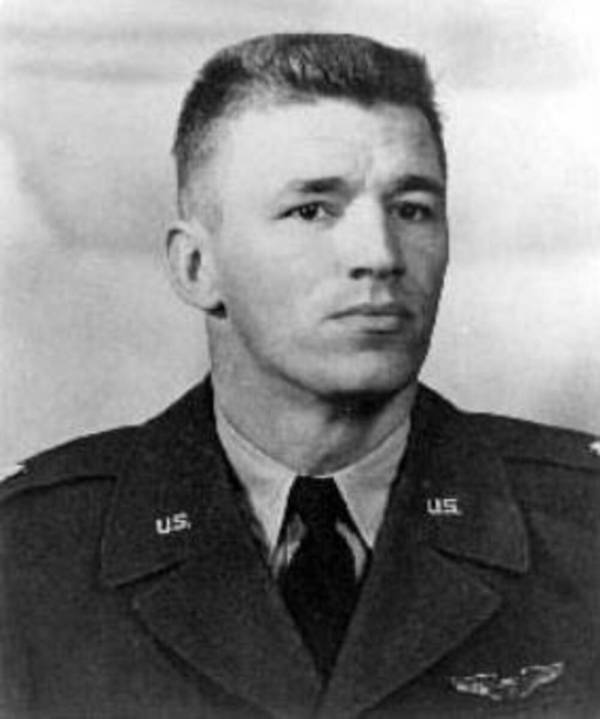
More than 100 Mainers have been awarded the Medal of Honor, the U.S. government’s highest honor for military members. Of those Mainers, each one has an amazing story of bravery and valor, each important to know and be inspired by.
These are the stories of four of those courageous Mainers, who distinguished themselves on the battlefield for the sake of their fellow soldiers and their country — and in some cases made the ultimate sacrifice.
Andrew J. Tozier
Of the Mainers awarded Medals of Honor for their bravery during the Civil War, few have a post-war story that’s nearly as remarkable as the story of their battlefield gallantry, but Andrew Tozier is one such person.
Born in Monmouth, Tozier escaped an abusive father to first become a sailor. At age 23, not long after the Civil War began, he enlisted in the 2nd Maine Infantry Regiment. He was injured and captured at the Battle of Gaines Mill in Virginia in 1862, but after being released by Confederate forces he joined Company I of the 20th Maine in 1863.
At Gettysburg, he was the color bearer for his regiment, and on Little Round Top he defended his fellow soldiers alone, a feat of bravery for which, decades later, his commander, Brig. Gen. Joshua Chamberlain, recommended he be awarded the Medal of Honor — and he was, in 1898, when he was 60.
After the war, Tozier spent nearly five years as a criminal, stealing cattle and other property in towns across Maine. He had a powerful ally when he was finally arrested: Chamberlain, who by then was Maine’s governor. Chamberlain pardoned Tozier, and invited him to live at his house in an effort to get Tozier to clean up his act. Tozier spent the rest of his life working as a fisherman, dairy farmer and factory worker.
Tozier was portrayed by Maine actor Herb Mitchell in the movie “Gettysburg,” and his story was told in the song “Ballad of the 20th Maine” by Maine band the Ghost of Paul Revere.
Edward Dahlgren, Caribou

Aroostook County native Edward Dahlgren lived most of his life quietly in the town of Blaine, working as a seed potato inspector for the state. But during World War II, he was personally responsible for keeping an American platoon out of danger during an enemy counterattack in Oberhoffen, France, and capturing about 40 German soldiers during the skirmish on Feb. 11, 1945 — just a few months before the war ended in Europe.
That action earned him the Medal of Honor, presented to him by President Harry S. Truman. When he was awarded it, he was the only living Maine Medal of Honor winner after the Civil War. Lt. Dahlgren lived in Maine for the rest of his life, and a hall at the former Loring Air Force Base was named for him, as was a street in Caribou. He died in 2006 at age 90.
Charles Loring, Portland

Few military members serve in two wars — let alone distinguish themselves in both the way Portland native Charles Loring did. A few years after graduating from Cheverus High School, in 1942, Loring enlisted in the U.S. Army Air Force and received training as a fighter pilot. He would spend the next two years flying missions in both North America and, eventually, on the European front. By December 1944, he’d flown 55 combat missions.
On Dec. 24, 1944, Loring was shot down in Belgium, and spent the next six months as a Nazi prisoner of war. He was liberated three days before the war in Europe ended on May 8, 1945.
Loring’s actions that garnered him the Medal of Honor came seven years later when, after years training other pilots, he returned to combat duty in July 1952 as a jet fighter pilot during the Korean War. On Nov. 22 of that year, while leading a flight patrol near the 38th parallel, Loring spotted Chinese artillery that was pinning down American ground troops nearby. The Chinese crews fired on Loring’s aircraft and damaged it, but rather than abort the mission, Loring turned off his radio and dive bombed the artillery, eliminating the threat. He died on impact, and his body was never found.
On May 9, 1954, Loring’s widow received the Medal of Honor from President Dwight Eisenhower. On the same day, it was announced that the newly built Air Force base in Limestone would be named for him — Loring Air Force Base, which operated until 1994.
Gary Gordon, Lincoln
Master Sgt. Gary Gordon, a native of Lincoln and graduate of Mattanawcook Academy, joined the Army straight out of high school, eventually joining the elite 1st Special Forces Operational Detachment-Delta, or Delta Force.
In 1993, he was posted as part of a peacekeeping mission in Mogadishu, Somalia, and on Oct. 3 of that year went in with his fellow sniper Randy Shughart to protect the crews of two Black Hawk helicopters that had been shot down by Somali gunfire during the Battle of Mogadishu, made famous by the book and film “Black Hawk Down.”
During the battle, Gordon urged his superiors to let him get on the ground to protect the crew of the downed helicopters from Somali soldiers. Shughart and Gordon alone pulled the crew from the helicopters and defended their position until they ran out of ammunition. Both died defending their fellow soldiers.
Gordon and Shughart were awarded the Medal of Honor, the first awardees since the war in Vietnam. Gordon’s widow, Carmen, was presented with the medal in 1994 by President Bill Clinton, and in 1996, the USNS Gordon was named for him. Last year, a statue of Gordon was unveiled in his hometown of Lincoln, and this year, Maine lawmakers advocated for naming a Maine-built Navy destroyer after him.










